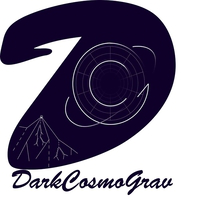Speaker
Description
Gravitational waves emitted during a black-hole merger might differ from what General Relativity predicts due to the presence of yet unknown fields coupled only to gravity. A simple example is that of a single shift-symmetric scalar field that produces black hole hair, affecting both the inspiral and ringdown phases of black hole mergers.
We can constrain such scenarios from the point of view of fundamental principles: can black holes be altered by a scalar field in an effective field theory (EFT) consistent with causality, unitarity and locality?
I will consider the requirement that the EFT produces no measurable time-advances in the propagation of scalar and graviton probes.
This forces the scalar-graviton interaction to be much weaker than what would be allowed by perturbative control, making deviations from General Relativity unobservable in the next gravitational-wave detectors.
Further constraints may arise from unitarity and causality in the form of dispersion relations for S-matrix elements. I will discuss the interplay between these constraints and the requirement of macroscopic causality.
Faculty position
PhD
| Topic Field | Gravity |
|---|

